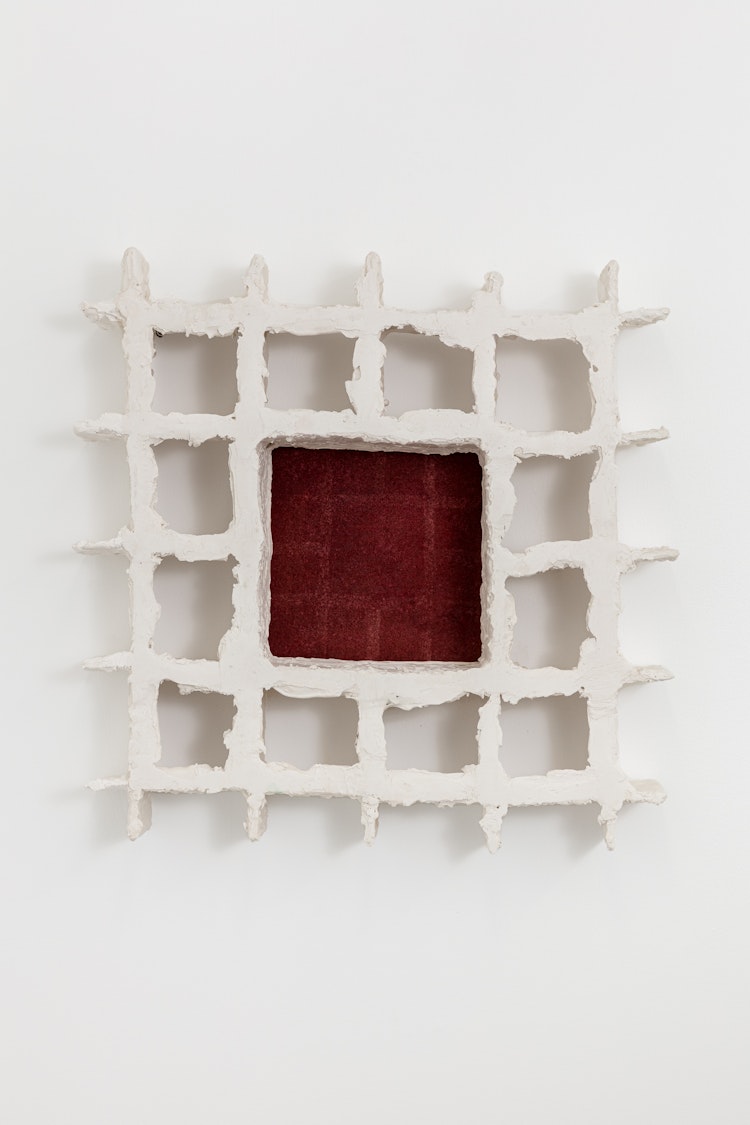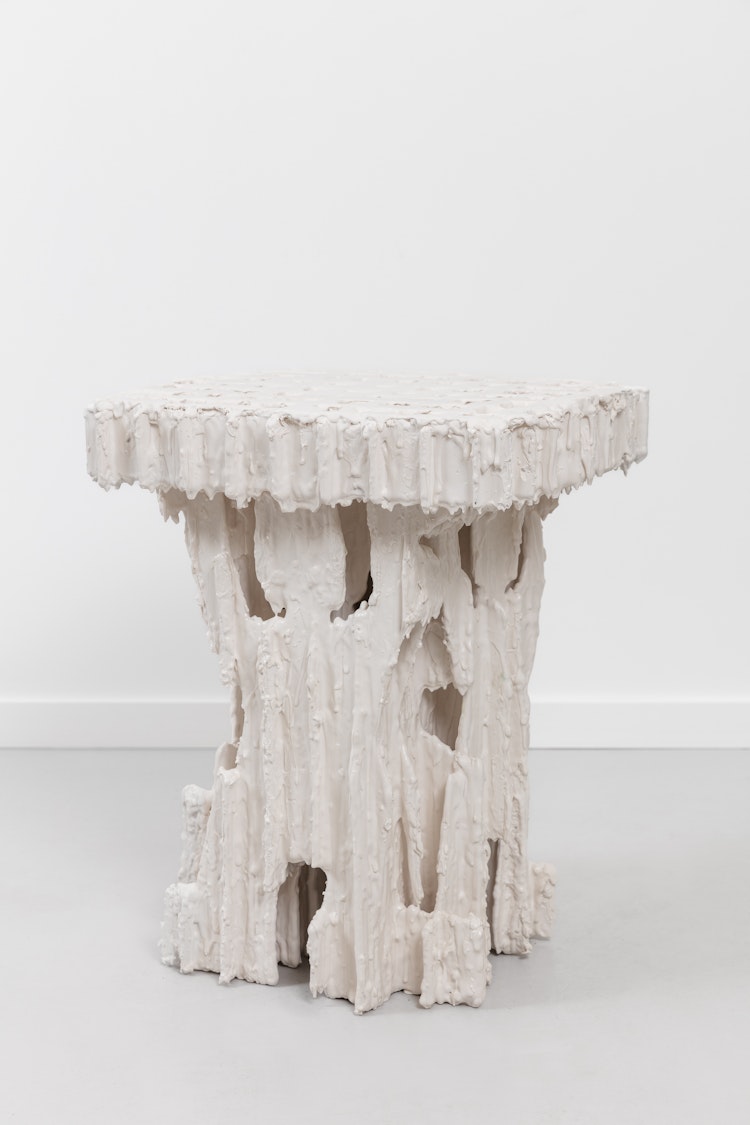Halparke


How does movement translate into form?
This is one of the questions Nebil Zaman touches upon in his first solo show in KUBEN.
The exhibition title refers to the Kurdish word for carole or ring dance, the oldest form of collective dance known to man in both Western and Eastern culture. Zaman has collected inspiration from halparke as the starting point for a series of sculptures that place themselves between artwork and functional object. With a grid as the starting point for each construction, Zaman explores how bodily movements can be translated into a certain furniture typology, and subsequently how the pieces visually relate to the body. A grid typically represents something strict and controlling, but in Zaman’s works it creates possibilities for form and motion in between its frame. The question of what can be created within certain limits is evident here. This does not only concern the creation of a certain type of object, but also represent a visual symbol for how human beings relate to one another and the limits we create for ourselves within a community.
___
Nebil Zaman (f.1985, Kurdistan, Iraq) has a degree in Furniture Design and Interior Architecture from Oslo National Academy of the Arts. In combining his background from traditional woodworking, advertising and furniture design with his childhood upbringing and experiences, Zaman explores how our surroundings affect us socially and culturally through the use of different materials, production techniques, and visual languages. His formal language and aesthetic stems from a fascination with ancient civilizations, archaeological encounters, science fiction and futuristic visions. The scope of his creative process focuses on the combination of digital fabrication and handcraft methods. Zaman is most intrigued by the materiality of plaster, as it provides an organic element of expression and a sense of freedom.
Zaman was awarded the ‘DOGA Award for Newcomers’ 2017 for his project “Personal Space”, a bench that invites to reflect on how we relate to one another. The piece was acquired by the National Museum of Norway in 2019.
Zaman lives and works in Oslo, Norway.





What are you looking for?